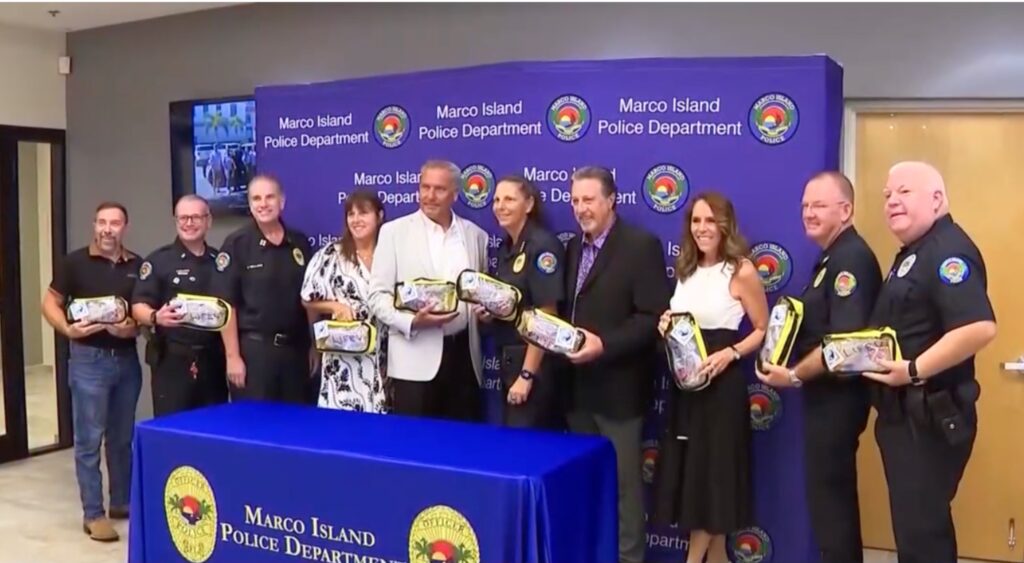

Marco Island Police Add Life-Saving Choking Devices to Patrol Cars
Marco Island Police Add Life-Saving Choking Devices to Patrol Cars
Choking is the fourth leading cause of accidental deaths in the United States — but a new tool now in Marco Island patrol cars could change that.
The Marco Island Police Department has equipped every patrol vehicle with the LifeVac, a handheld suction device designed to clear a person’s airway when traditional methods like the Heimlich maneuver fail. The addition makes Marco Island one of several local law enforcement agencies now carrying the device, joining the Naples Police Department and the Collier County Sheriff’s Office.
“We’ve actually been a proponent of it for a while now,” said Marco Island Police Chief Tracy Frazzano. “We’ve had it for a couple of years. This is now enhancing us because we’ve only had it in a few cars. Now it’s going to be in our entire fleet. Plus, the donation will also go into some of our city facilities.”
Those facilities include City Hall, the Parks and Recreation building, the Racquet Center, and the department’s marine unit, ensuring the device is available wherever emergencies may occur.
The LifeVacs were donated by the Cassata Foundation, in partnership with LifeVac inventor and CEO Arthur Lih. Together, they’ve made it their mission to prevent choking deaths worldwide.
“We’ve saved lives in 47 countries all over the world,” Lih said. “We’re probably close to between three and four million units out there now, and we’ll save over 2,000 this year. With the help of others, we’re going to eliminate choking as a leading cause of death.”
The Cassata Foundation, which has long supported families in need on Long Island and in Florida, saw this donation as a meaningful way to expand its reach.
“We mainly try to help people that are in need, especially young kids and families,” said founder Rosario Cassata. “But this time, we tried to do something a little different.”
With LifeVacs now placed throughout Marco Island, first responders and city staff are better prepared to act fast when every second counts — and potentially save lives in the process.